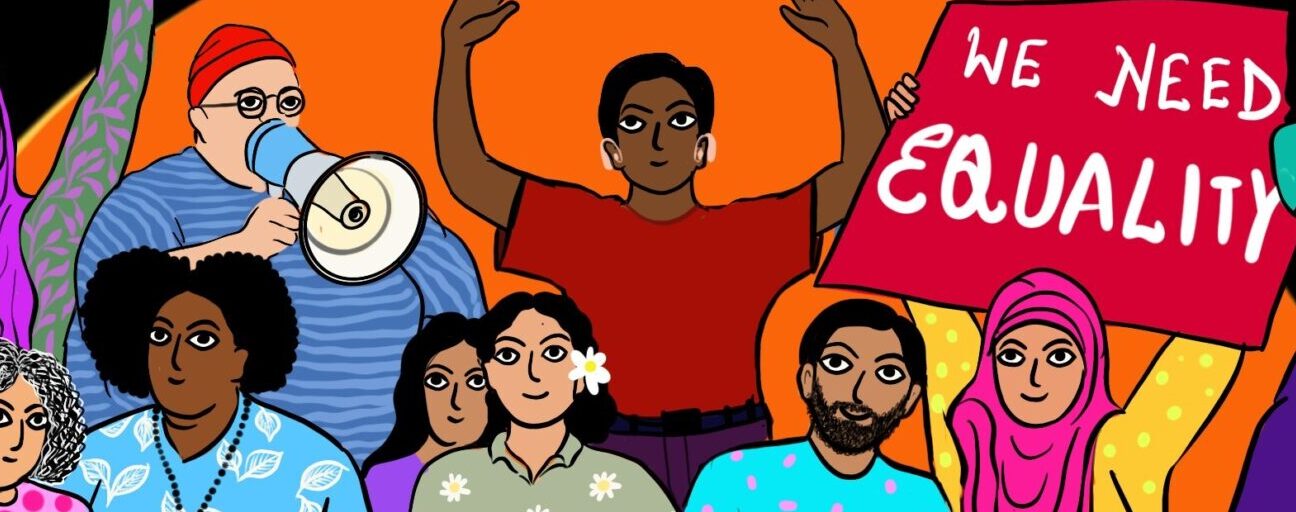Bond – here’s to the next 30 years!
Two former chairs, Richard Hawkes and Caroline Nursey, reflect on 30 years of Bond.
Richard Hawkes
In early 1994, I was appointed as the founding chief executive of a small international disability NGO called Sense International. I had absolutely no idea what to do.
But I realised there must be others out there who would know – and if I could steal their ideas then maybe I would be able to do a decent job. This was before mobile phones and the internet, so I went to the nearest telephone box and started calling up all the international charities in the telephone book.
Eventually, someone said “Why don’t you just contact Bond?”, which sounded utterly ridiculous due to him being a fictional character, until they explained that Bond had been created the year before and brought together all the UK-based international NGOs.
It was a revelation – so many organisations I could learn from, and my own Board would think I was a genius.
And so began my 29-year (and counting) association with Bond, which has included playing a role in setting up two Bond working groups, being elected to the Board and eventually being Chair for 5 years. More than enough to indicate what a crucial role I believe Bond has to play in the sector and in strengthening the contribution we can all make to the development agenda.
Take a look at what Bond and our incredible members have managed to acheive over the last 30 years!
Find out moreBack in the mid-90s, there was a group of organisations working in Eastern Europe. We all needed support from each other. So we set up the Bond East European Working Group. The same happened in disability – and we set up the Bond Disability and Development Working Group (which is still going strong today). These working groups enabled organisations and individuals to come together, learn from each other, share ideas and identify issues of mutual interest on which we could agree collective action.
It’s exactly what a sector body such as Bond should be there for. By ourselves, we will never bring about the fundamental systemic change we all want to see. We stand a far greater chance of achieving that together with others.
I remember holding on to that belief at the 1994 Bond AGM in the basement of an old building in Westminster when 25 of us sat shivering waiting for a few more people to arrive so that we could be quorate, approve the accounts and then find a radiator.
Bond really took off the day after my term of office as Chair came to an end. Years later I went to a Bond Conference. There were hundreds of people there, over two days, along with a number of sponsors paying to be involved. It was a great example of how things can transform and evolve with the right leadership.
My active involvement in Bond stopped for a while when I moved into the UK sector for six years. But Bond’s influence continued as we copied much of the Bond model in the social care sector, successfully convening organisations and collectively influencing the UK government.
And it doesn’t stop there. The period ahead could be the most important in Bond’s history. The role of UK INGOs is quite rightly being questioned and challenged, and the whole shape of global development is evolving. It is highly likely that we will go into the next General Election with neither of the two main parties committed to increasing aid spending – and this at a time when the need for funding is greater than it has ever been.
The backdrop means that UK INGOs need to be creative, learn from each other and be a powerful body for collective influence like never before. Only Bond can bring INGOs together to do this and provoke innovative futures by thinking and convene the development sector for collective influence. And maybe Bond could be even bolder – at the forefront of driving change and putting pressure on its own members to change, as well as galvanising more powerful collective action.
Regretfully there will still be poverty, disasters, conflict and inequality in 30 years time. But how the UK engages positively on those issues, and the role that INGOs play, must be drastically different. Bond can lead this change for the organisation itself and for the sector as a whole. With that, the next 30 years have the potential to be even more exciting and influential than the last 30.
Caroline Nursey
I remember what it was like before Bond existed – a time when only the biggest NGOs had access to the British government.
We had few formal ways to talk to each other, learn and influence. But by the time I was elected as a trustee at the end of 2013, later becoming chair in 2015, it seemed that most of the sector’s battles had been won: all the main parties had 0.7% GNI for ODA in their 2015 manifestos, the Global Goals were in place, DFID saw us as key partners, and there were lots of events where we met and learned.
Some people in the sector even began to wonder whether Bond was necessary anymore.
And then the sector-wide safeguarding issues boiled up in 2018 and Bond was needed more than ever before. Bond brought CEOs together, reeling with shock, to work out how the sector could improve our practice, how to engage with statutory authorities and media, and how to get through the crisis as individuals and organisations.
That crisis reminded us all just how important Bond is. And, sadly, that was just the first of the waves of crises that have followed, from pandemic to financial.
Bond has supported and led us through them all.
Want to share your appreciation? Tweet us using #Bond30 #UnityStrengthGlobalChange
Category
News & ViewsThemes
Bond news



